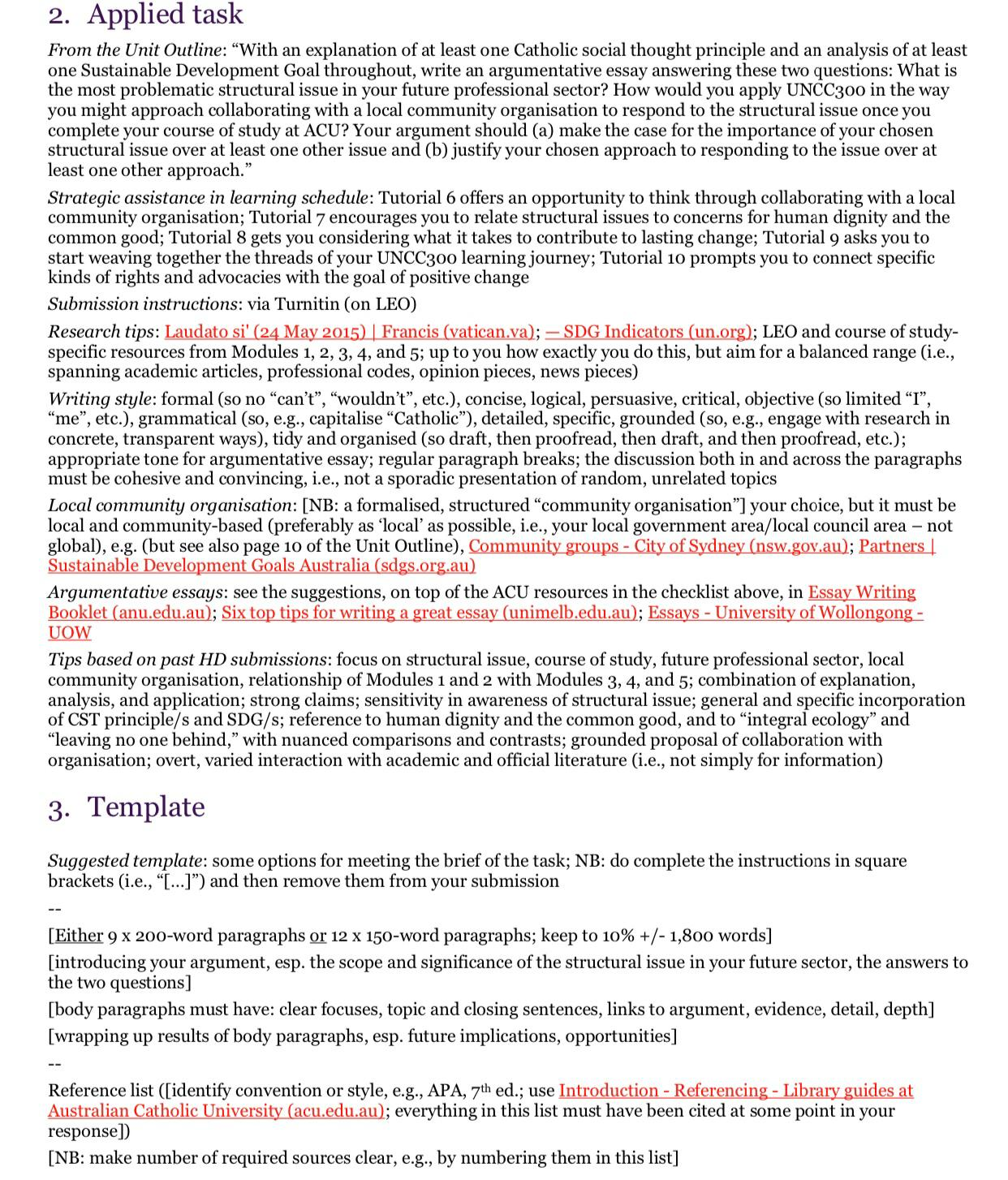Opportunities list identify convention style
UNCC300 Applied Task

specific resources from Modules 1, 2, 3, 4, and 5; up to you how exactly you do this, but aim for a balanced range (i.e., spanning academic articles, professional codes, opinion pieces, news pieces)
Writing style: formal (so no "can't", "wouldn't", etc.), concise, logical, persuasive, critical, objective (so limited "I", "me", etc.), grammatical (so, e.g., capitalise "Catholic"), detailed, specific, grounded (so, e.g., engage with research in concrete, transparent ways), tidy and organised (so draft, then proofread, then draft, and then proofread, etc.); appropriate tone for argumentative essay; regular paragraph breaks; the discussion both in and across the paragraphs must be cohesive and convincing, i.e., not a sporadic presentation of random, unrelated topics
Tips based on past HD submissions: focus on structural issue, course of study, future professional sector, local community organisation, relationship of Modules 1 and 2 with Modules 3, 4, and 5;
combination of explanation, analysis, and application; strong claims; sensitivity in awareness of structural issue; general and specific incorporation of CST principle/s and SDG/s; reference to human dignity and the common good, and to "integral ecology" and "leaving no one behind," with nuanced comparisons and contrasts; grounded proposal of collaboration with organisation; overt, varied interaction with academic and official literature (i.e., not simply for information)
[wrapping up results of body paragraphs, esp. future implications, opportunities]
Reference list ([identify convention or style, e.g., APA, 7th ed.; use Introduction - Referencing - Library guides at Australian Catholic University (acu.edu.au); everything in this list must have been cited at some point in your response]) [NB: make number of required sources clear, e.g., by numbering them in this list]





